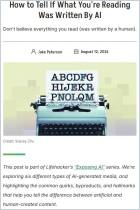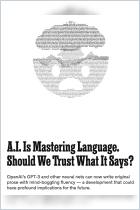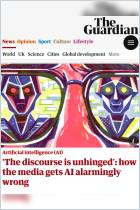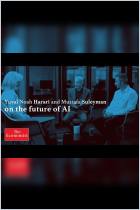
Article
The Supply of Disinformation Soon Will Be Infinite
Disinformation campaigns used to require a lot of human effort, but artificial intelligence will take them to a whole new level.
The Atlantic,
2020
We currently cannot offer you an audio version of this summary.
Recommendation
In the digital age, social media accounts and plagiarized articles can launch media careers or disinformation campaigns. The next frontier is content generated by artificial intelligence (AI), texts that people find difficult to distinguish from the work of old-fashioned propagandists. The digital world was already prone to disinformation and, as Renée DiResta reports in The Atlantic, this new development will build increasing suspicion and distrust. She posts a giant red flag: If you thought influencers and propagandists were slippery, they’re about to get a lot more so.
Summary
About the Author
Renée DiResta is the technical research manager at the Stanford Internet Observatory.
Learners who read this summary also read
Article
Article




















Comment on this summary or Start Discussion